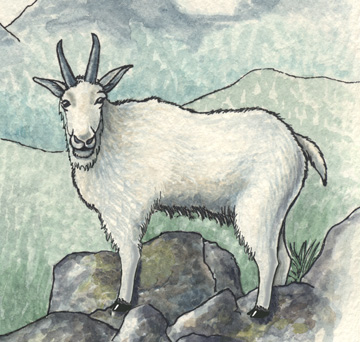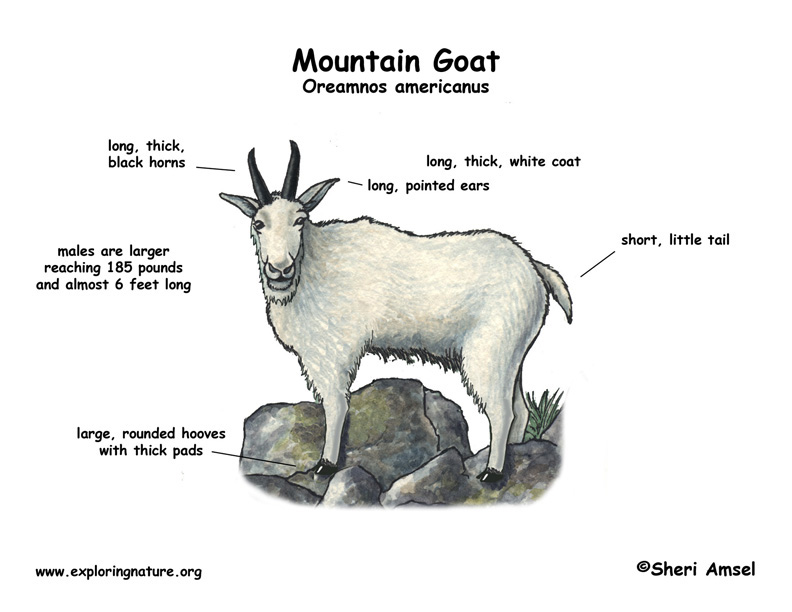


They are found from southeastern Alaska down through the Canadian Rockies and into Montana, Colorado, and Washington.
They live in high mountain areas with cliffs and steep rock up which they escape predators.
They have long, thick, white coats. Both sexes have long, thick, black horns. They have large, rounded hooves with thick pads that help them grip the rocks as they travel. The males are larger reaching 185 pounds and almost 6 feet long.
They live in herds in the winter, spreading out in the spring. They are often found alone in summer, or a female with young. During mating season the males fight over females by stabbing at each other with pointed horns.
They eat plants in their habitat, including grass, moss, lichens, wildflowers and shrubs.
Wolves, mountain lions, and eagles can kill kids and will sometimes take adults.
Females are pregnant for up to 6 months (gestation). They have 1-3 kids by June. The kids can climb on rocks almost right after they are born. This is important to protect themselves from predators. Females will find a very steep, rocky place to give birth to avoid predators.
They live up to 15 years in the wild. They are listed as Lower Risk - least concern.
Kingdom: Animalia
Phylum: Chordata
Subphylum: Vertebrata
Class: Mammalia
Order: Artiodactyla
Family: Bovidae
Subfamily: Caprinae
Genus: Oreamnos
Species: Oreamnos americanus
When you research information you must cite the reference. Citing for websites is different from citing from books, magazines and periodicals. The style of citing shown here is from the MLA Style Citations (Modern Language Association).
When citing a WEBSITE the general format is as follows.
Author Last Name, First Name(s). "Title: Subtitle of Part of Web Page, if appropriate." Title: Subtitle: Section of Page if appropriate. Sponsoring/Publishing Agency, If Given. Additional significant descriptive information. Date of Electronic Publication or other Date, such as Last Updated. Day Month Year of access < URL >.
Amsel, Sheri. "Mountain Goat " Exploring Nature Educational Resource ©2005-2024. December 13, 2024
< http://exploringnature.org/db/view/472 >
